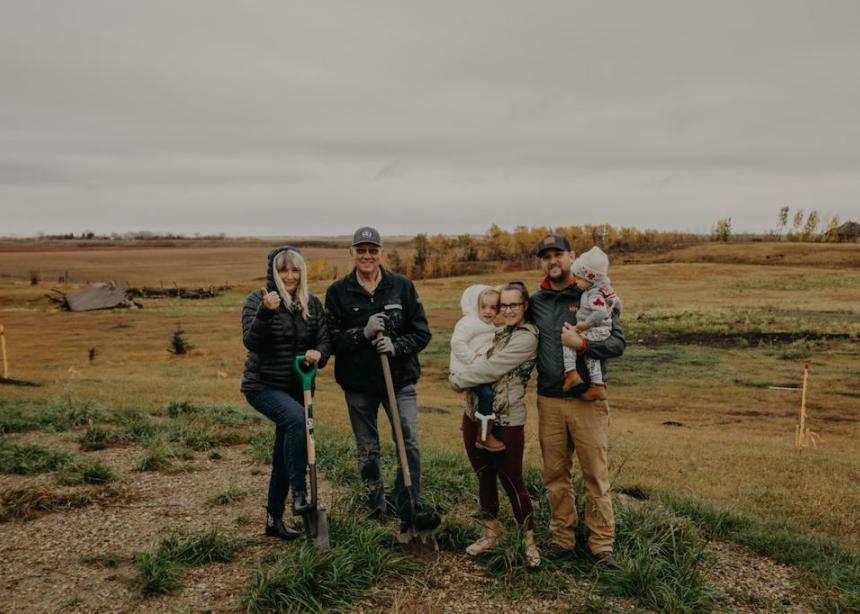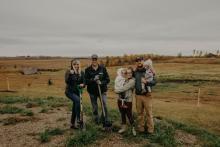Elisa Humphreys was sitting on her couch in her home in Carstairs, Alberta, when she got the emergency alert about the tornado.
It was July 1 and Humphreys, 63, who manages Clothing for a Cause—a ministry that recycles clothing and household textiles to provide financial assistance to non-profit partners in Canada and in the developing world—was enjoying the Canada Day holiday.
With no time to spare, she grabbed her dog and one of her three cats—she didn’t know where the other two were—and headed for her car.
Sadly, she had no time to get her three horses and lead them to safety. “The tornado was big, and I didn’t know how fast it was coming,” Humphreys said. “I didn’t want to put my life in danger.”
After the tornado passed, she drove back to check on her house and other buildings, including a house owned by her son and his wife also on the property.
“Everything was gone. Vanished,” she said. “All there was was a debris field. Even the fence posts were sucked right out of the ground.”
It was, she learned later, one of the strongest tornadoes the province has seen in more than 35 years, with wind speeds up to 275 km/h.
Her horses survived, but they were injured. One was so badly hurt it had to be put down. Her other two cats were found later, also dead.
Fortunately, hundreds of community members rallied to help her clean up.
“It was … the most amazing thing,” Humphreys said. “They didn’t rest until every speck of debris was cleaned up.”
The next step was rebuilding, and that posed a challenge.
Since her mobile home was on wood blocks, she was unable to get insurance. Her son and his family had recently sold their house; it was ready to be moved by the purchaser. It wasn’t insured, either.
Humphreys thought about buying another mobile home, but there was nothing affordable in good condition. Her son and his family also worried about where they might find a place to live.
Humphreys may have not known what to do, but someone in the community did—they contacted Mennonite Disaster Service (MDS). After sending an investigation team, the MDS Alberta Unit quickly decided to help.
“It wasn’t a hard decision,” said Harold Friesen, a member of the Alberta unit. “Elisa is a very selfless woman, always giving back to the community and concerned about others.”
They agreed to a house plan for them all—her son and family living on the ground floor and a living space for Humphreys in a walkout basement. They hope to break ground and start building this fall. Meantime, they are all living in rented accommodations.
“I like the plan,” she said of the new house, adding the investigation team was very sensitive and respectful. “I appreciated how they interacted with us. I never felt like we were receiving charity.”
She especially liked how they invited her to provide input into the design of the house, right down to the paint colours. “I felt like we were more important to them than the house they were building,” she said.
Although sad about the loss of her horse and cats, and acknowledging the trauma from the disaster, Humphreys still feels blessed.
“I gained more than I lost,” she said of all the help she has received. “God turns all things out for our better.”
MDS is responding through its Alberta unit. The unit needs $120,000 for materials to build a new house for Humphreys and her family.
People can donate at mds.org/donate-canada or send a cheque to MDS Canada, 200-600 Shaftesbury Blvd., Winnipeg, MB, R3P 2J1.



Add new comment
Canadian Mennonite invites comments and encourages constructive discussion about our content. Actual full names (first and last) are required. Comments are moderated and may be edited. They will not appear online until approved and will be posted during business hours. Some comments may be reproduced in print.